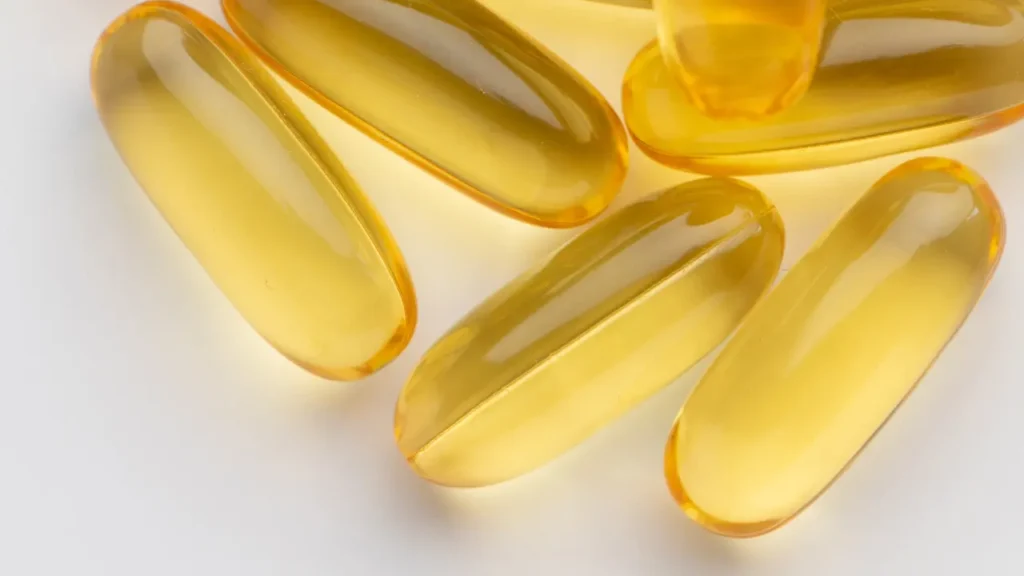The resilient Sea Buckthorn (Hippophae rhamnoides) plant is prized for its vivid orange berries. It has long been used in Eurasian herbal medicine, but more recently, it has drawn interest due to its possible health advantages, especially with regards to nutrition, skin health, and cognitive function. This analysis explores the chemical components of Sea Buckthorn, health implications, recommended dosages, adverse effects, possible interactions with other substances, and recommendations for responsible usage, with a special emphasis on improving alertness, focus, and cognition.
You May Also Like:
Should You Try CBD for Focus? Here Are the Facts.
CBD for Concentration: 3 Epic Benefits that Boost Your Focus
Sea Buckthorn: Benefits, Dosage, Side Effects, Drug Interactions, And Other Important Information is an original (NootropicsPlanet) article.
Nature of Sea Buckthorn
The prickly plant known as Sea Buckthorn is indigenous to cold-temperate regions of Asia and Europe. Its berries, which flourish in poor soil and high temperatures, are a testament to its hardiness in hostile situations. The plant’s robust phytochemical profile, which evolved as a natural defense against environmental stressors, makes it resilient.
The plant’s biochemical diversity provides both its health-promoting qualities and evidence of its survival strategy. The utilization of Sea Buckthorn in both conventional medicine and contemporary herbal medicine methods is supported by its wide array of bioactive constituents, which include vitamins, minerals, antioxidants, and vital fatty acids.
Health Benefits of Sea Buckthorn
Cognitive Enhancement
The potential of Sea Buckthorn to enhance cognitive functions such as alertness, focus, and memory may be attributed to its rich antioxidant content. Oxidative stress is a known contributing factor to cognitive decline. The antioxidants in Sea Buckthorn can mitigate this stress, protecting neurons from damage and improving neuroplasticity. This mechanism suggests a promising role for Sea Buckthorn in enhancing cognitive performance and potentially mitigating the risks of neurodegenerative diseases.
Cardiovascular Health
Sea Buckthorn’s omega fatty acids, flavonoids, and vitamins contribute to cardiovascular health by improving lipid profiles, reducing inflammation, and preventing atherosclerosis. These effects collectively support enhanced blood flow and oxygenation to the brain, indirectly benefiting cognitive functions and overall brain health.
Skin Health
The omega-7 content, along with vitamins C and E, promotes skin health by enhancing regeneration, reducing inflammation, and protecting against UV-induced damage. Healthy skin is a marker of good nutrition and overall well-being, which correlates with improved mood and cognitive performance.

Chemistry of Sea Buckthorn
Berries from the Sea Buckthorn plant are rich in vitamins, minerals, antioxidants, and phytochemicals. They are very high in carotenoids, flavonoids, vitamins C and E, and important fatty acids (omega-3, omega-6, omega-7, and omega-9). The diverse range of health advantages linked to Sea Buckthorn is partly attributed to the distinct makeup of these bioactive substances.
Because of their antioxidant qualities and support for healthy vision, carotenoids including lutein, zeaxanthin, and beta-carotene are essential. Quercetin and kaempferol are two flavonoids that contribute to the plant’s benefits for cardiovascular health and anti-inflammatory properties. Furthermore, the high vitamin C concentration is essential for skin health and immune support.
Omega-7 fatty acids, particularly palmitoleic acid, are less common in the natural world and have been shown to support metabolic health and skin regeneration. The comprehensive blend of these nutrients positions Sea Buckthorn as a potent supplement for overall health and specific cognitive benefits.
Physiological Mechanisms of Action
Antioxidant Mechanism and Neuroprotection
The cognitive-enhancing benefits of Sea Buckthorn are mostly attributed to its high concentration of antioxidants, including vitamin C, vitamin E, carotenoids, and flavonoids. By counteracting free radicals, these antioxidants lessen oxidative stress, which is a major contributor to aging and the etiology of numerous neurological illnesses. Sea Buckthorn may improve neuroplasticity and cognitive abilities like memory, learning, and focus by shielding neural cells from oxidative damage.
Moreover, the neuroprotective benefits of Sea Buckthorn are enhanced by its anti-inflammatory flavonoids and omega fatty acid content. Numerous cognitive problems, such as decreased cognitive function and an increased risk of neurodegenerative disorders, are associated with chronic inflammation. Sea Buckthorn has the potential to improve cognitive performance and brain health by regulating inflammatory pathways.
Metabolic and Cardiovascular Health
Sea Buckthorn’s distinct fatty acid profile, especially its omega-7 (palmitoleic acid) content, has an impact on metabolic and cardiovascular health. This uncommon fatty acid increases insulin sensitivity and decreases inflammation, two benefits that are critical for metabolic health and, consequently, cognitive performance. Better metabolic health makes it easier for the brain to use energy and maintain blood glucose levels at ideal levels, which is necessary for staying focused and awake.
Together with phytosterols, the plant’s omega-3 and omega-6 fatty acids improve lipid profiles and lower the risk of atherosclerosis, which promote cardiovascular health. Maintaining good cardiovascular health lowers the risk of vascular-related cognitive impairment and supports cognitive processes by ensuring effective blood flow that supplies oxygen and nutrients to the brain.
Skin and Immune System Support
The benefits Sea Buckthorn offers to the skin and immune system are also associated with general wellness and mental health, even if they are not directly tied to cognitive performance. Its vitamins, antioxidants, and fatty acids work in concert to boost the immune system and enhance skin health and resiliency. Good skin and a robust immune system are two factors that support well-being, which has a good correlation with cognitive function.

Optimal Dosage of Sea Buckthorn
Because different people have different health conditions and supplement forms vary, figuring out the best dosage for Sea Buckthorn can be challenging. Sea Buckthorn oil dosages typically vary from 500 mg to 3,000 mg per day, split into two or three doses. It is best for you to start at the lower end of this range for cognitive benefits and to adapt according to individual efficacy and tolerance.
Side Effects of Sea Buckthorn
While Sea Buckthorn is generally safe for most people, some may experience side effects, particularly when consumed in large quantities. These side effects can include:
- Digestive Issues: High doses of Sea Buckthorn may cause stomach discomfort, diarrhea, or constipation due to its high fiber and oil content.
- Allergic Reactions: As with any natural supplement, there is a risk of allergic reactions. Symptoms may include skin rash, itching, or difficulty breathing.
- Skin Discoloration: Consuming large amounts of Sea Buckthorn oil can sometimes lead to a yellowish tint to the skin, a result of the high carotenoid content. This is harmless and reversible.

Potential Substance Interactions
Sea Buckthorn may interact with certain medications, altering their effects. It is important for you to consult healthcare professionals before adding Sea Buckthorn to your regimen, especially if you are taking:
- Blood Thinners (Anticoagulants): Sea Buckthorn may enhance the effects of blood-thinning medications, increasing the risk of bleeding.
- Diabetes Medications: Due to its potential effects on blood sugar levels, Sea Buckthorn might interfere with diabetes medications, requiring adjustments to dosages.
- Anti-Hypertensive Drugs: Sea Buckthorn can lower blood pressure, potentially causing blood pressure to drop too low when taken with blood pressure medications.
Responsible Use of Sea Buckthorn
The article recommends that those who wish to improve their cognitive function include Sea Buckthorn in their holistic regimen. In addition to supplements, this entails a healthy diet, consistent exercise, and mental stimulation. Sea Buckthorn should be used safely and effectively by starting with a smaller dosage and gradually increasing it, keeping an eye out for any adverse effects, and speaking with a healthcare provider, especially if you’re taking other medications.
Sea Buckthorn:
Conclusion
Sea Buckthorn is a natural source that is antioxidant and anti-inflammatory. It’s a plant with berries that flourishes in difficult environmental conditions. It’s good for the skin, the brain, and cardiovascular health. It does have the potential to interact negatively with some medications of commonly occurring chronic conditions, so please keep this in mind as you decide whether to supplement with Sea Buckthorn. It’s packed with vitamins and helpful fatty acids that show proof of positive benefit on the brain.

References:
- “The impact of Sea Buckthorn oil fatty acids on human health.” Retrieved from: https://www.ncbi.nlm.nih.gov/pmc/articles/PMC6589177/
- “Phytochemistry, health benefits, and food applications of Sea Buckthorn (Hippophae rhamnoides L.): A comprehensive review.” Retrieved from: https://www.ncbi.nlm.nih.gov/pmc/articles/PMC9763470/
- “What are the benefits of Sea Buckthorn oil?” Retrieved from: https://www.medicalnewstoday.com/articles/Sea-Buckthorn-oil-benefits
- “Sea Buckthorn – Uses, Side Effects, and More.” Retrieved from: https://www.webmd.com/vitamins/ai/ingredientmono-765/Sea-Buckthorn
Important Note: The information contained in this article is for general informational purposes only, and should not be construed as health or medical advice, nor is it intended to diagnose, prevent, treat, or cure any disease or health condition. Before embarking on any diet, fitness regimen, or program of nutritional supplementation, it is advisable to consult your healthcare professional in order to determine its safety and probable efficacy in terms of your individual state of health.
Regarding Nutritional Supplements Or Other Non-Prescription Health Products: If any nutritional supplements or other non-prescription health products are mentioned in the foregoing article, any claims or statements made about them have not been evaluated by the U.S. Food and Drug Administration, and such nutritional supplements or other health products are not intended to diagnose, treat, cure, or prevent any disease.


